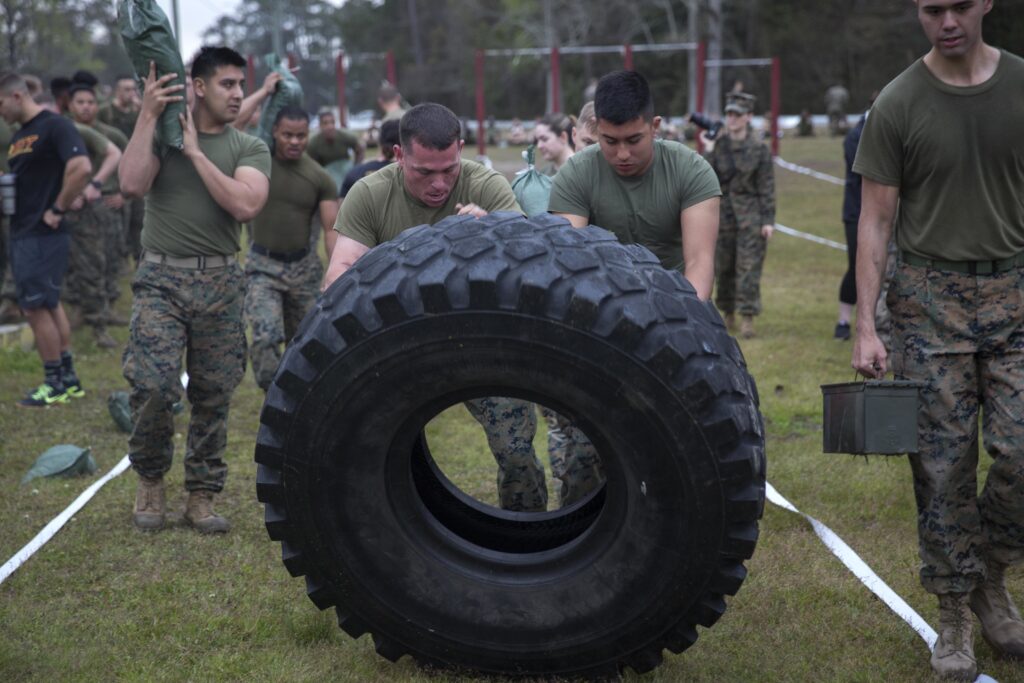Summer 2023
Mental preparation during tactical strength training

Throughout my professional life as a tactical athlete and a Certified Strength and Conditioning Specialist (CSCS), a keen adherence to mental preparation during tactical strength training has always been paramount both for myself and the tactical athletes I serve.
Mental preparation is essential in the tactical athlete field of work when called upon at times of physical, mental, and emotional duress in which we can rely upon our training of both physical and mental modalities. Mental preparation can be relied upon when we need to be resilient or mentally tough.
How to become resilient or mentally tough and what is the difference?
Resiliency and mental toughness are relative concepts however you can illustrate both and also you can exemplify one and not the other. Resiliency is what an individual does to mentally overcome a stressful or isolated individual event. It is what the tactical athlete does while under duress to overcome a sudden obstacle either on the job or in their personal life, like anyone in the general population. When encountered with a stressful period of life it is those key factors that were employed to alleviate and subside that particular event. We can be aware of and recover from that event and proactively change for the new circumstance. It has been referred to as “bouncing back,” however in reality it is more than that. Resiliency is the ability to adapt, change and improve for the better after that isolated event or moment of adversity. Therefore, when we encounter said event, we must essentially change our trajectory of where we are headed for a successful outcome.
Mental toughness, on the other hand, is a series of strategies devised through our cognitive abilities that will pre-emptively meet the potential stressor or aggravating circumstance head-on and will assist the individual in mitigating or overcoming that event. To be mentally tough, we must prepare intellectually for the ensuing event and positively hardwire our minds. When you are mentally tough, you are prepared to be situationally aware of your eventual ensuing stressors or circumstances.

How do I develop mental toughness?
Mental toughness is a positive quality that can be fostered within oneself in time, but there is a series of psychological techniques that must be utilized to attain this positive mindset to produce and achieve optimal performance when embattled with duress. We can call upon our previous life experiences that look back and remind ourselves of what we did to move forward, however, it is a well-devised strategy going forward that will help us the most. No matter the difficulty or unpleasantness of our previous encounter, the ensuing outcome will be beneficial to the individual. When one is mentally tough, they are in control of their emotional behavior, energy used, and all thought patterns no matter the event or situation. When one has mental toughness, they can bring about a positive outcome, because they think positively.
Some recommended techniques include mental imagery, self-efficacy, self-talk, and goal establishment for an ultimate vision. Mental imagery is the ability of the tactical athlete to mentally prepare and visualize an unknown situation for preparation although there may be minimal encounters of this said event. The individual visualizes these situations in their mind for better preparation if the situation does occur. It is similar to a sports athlete going through their macrocycle or yearly program of training in which they physically prepare themselves in their off-season, pre-season, and actual in-season. The time spent and countless hours of physical and mental preparation far outweigh the actual time spent in actual competition. A lot of tactical athletes and sports athletes quite often remark how the preparation was a lot more difficult and taxing than the actual anticipated event itself. The tactical athlete can use this technique of preparing for a possible life-or-death encounter/situation or event which may or may not take place.
Self-efficacy is the individual belief that an individual can complete a certain event, task, or situation in a specific instance. Unequivocally, the individual believes that they will be successful in the event. If an individual has the physical skillset to perform efficiently in their job and has the mindset of achieving a successful outcome in their tasking then they will perform optimally.
Self-talk is the conversation that we have deep within ourselves. If we are motivated to achieve a tasking or objective, even more, while under duress, we can then safely and cognitively train our minds that we will be victorious in our mind for eventual behavior. Self-talk can be either positive or negative. Examples of positive self-talk can be “I am ready to do this, I can get this!” During strength and conditioning sessions, I remind the tactical athletes that they control their minds and only positive thoughts are allowed to enter. We need to think of our minds as being a home and we are the owners of that home. We control who we decide to enter our home.
» ALSO SEE: Army introduces MASTR-E wearable tool to better soldier readiness
Additionally, we will not rent out any piece of our home (the mind), for negative thoughts. Another example that can be implemented is that of a horse on race day. During a horse race, I remind the athletes that it is the blinders that they have alongside their eyes to block out their peripheral vision to avoid seeing the obstacles of other horses, jockeys, spectators, etc., on either side. In this manner, the horses are laser-focused on their ultimate objective of winning the race. They will not let those side distractions get in the way of where they want to go. As mentioned before, negative self-talk is a modality, and examples of negative self-talk can be “You cannot do this,” or “Why were you thinking that?” Furthermore, an individual may need to conduct a self-assessment of how best they utilize self-talk, whether positively or negatively, and based upon where they perform better, it is advisable to employ that strategy going forward to work on their mental toughness.
Lastly, goal-setting is where the individual establishes certain objectives for achieving a certain vision for themselves. It may be an individual that desires to lose weight in which they make small daily reductions in either their caloric consumption or increased aerobic activity which provides one control over their actions and is an example of a short-term goal. The actual weight reduction of those pounds would be the long-term goal achieved, accomplished by accumulating the short-term goals weekly. Once, the short and long-term goals have been accomplished, the individual athlete will meet their objective for their vision which is to lose weight to look better, feel better, and perform optimally in their job while under duress.
Daniel J. Borowick, MS, CSCS, and founder of DOMEX Strength and Fitness, LLC is a former DEA special agent and physical task test administrator who has over 27 years of tactical experience in state (New Jersey State Police) and federal (DEA) law enforcement. Currently, he is a strength and conditioning specialist serving the U.S. Army’s 1st Armored Division’s (H2F) Holistic Health and Fitness Program, Sustainment Brigade with a detachment to the 22nd Chemical Battalion. You can contact DOMEX Strength and Fitness via Instagram @Domexstrengthandfitness, DOMEXstrengthandfitness@gmail.com.



